Adaptogens are so called because they help the body adapt to, and therefore cope with, a wide range of stressors, such as environmental, mental and emotional, as well as physical stress.
Because of the prevalence of stress in the modern world, adaptogens are one of the most useful classes of herb used in modern Western Herbal Medicine. Used in conjunction with herbs with an anti-anxiety (or anxiolytic) action, and other herbs that have brain-stimulating (or nootrophic) action, they can be used to treat anxiety and even depression. However, a consultation with a qualified medical herbalist is strongly advised in these cases, and your GP should always be consulted if depression is suspected. As a general rule, a qualified professional should always be consulted if symptoms are persistent, unusual or severe*.
There are about 20 adaptogenic herbs commonly used in herbal medicine, all with slightly differing actions. Some are available over the counter in good health food shops, although the doses recommended for over the counter medicines, for safety reasons, are generally less than would be prescribed by a herbalist following a consultation.
Withania (Withania somnifera) also known as Aswaghandha. This herb has been used in India for centuries, if not millennia, where it is believed that this herb prolongs life, stimulates the mind and enhances vigour and sexual prowess. It is frequently used with ghee (clarified butter) and honey for low sperm count and sexual debility in men. It also has a reputation as an aphrodisiac.
In modern herbal medicine, Withania is unusual in that it has a slightly calming effect, whereas other adaptogens are stimulating. It is often effective in treating anxiety, fatigue and insomnia due to stress and cloudy headedness. It is good for nervous exhaustion and for treating either hypo or hyperactive immunity. Endocrine function is improved, especially in the thyroid, testes and adrenal glands. It is also rich in iron, so is indicated where anaemia is a factor.
Astragalus (Astragalus membranaceus) also known as Milk Vetch. In modern herbal medicine, it has been shown to be very useful for treating those recovering from illness or otherwise suffering from a depleted immune system, perhaps due to chemotherapy. It also helps with fatigue or loss of appetite. Recent trials have shown that it also dramatically reduces the reoccurrence of breast cancer, probably because it stimulates the immune system at a very deep level. Much research is currently taking place on Astragalus, and it is likely to be licensed by the US FDA as an anticancer drug.
Herbalists normally avoid the use of Astragalus during acute infections such as colds and ‘flu.
Siberian Ginseng (Eleutherococus senticosus). This herb was widely used by Soviet athletes in the 60’s as it improves energy and stamina by improving mitochondrial activity, which are the powerhouses within every cell of the body. It is mildly stimulating and is well suited to people who become exhausted by working long hours. It can also improve the quality of sleep in such people, as well as improving immunity. Do not use with the heart medicine digoxin.
In clinical trials, Siberian Ginseng has been shown to lower levels of the so-called ‘bad’ LDL cholesterol, as well as the equally important but less publicised blood lipid triglyceride.
Korean Ginseng (Panax ginseng) a.k.a. Asian or Chinese Ginseng. In Chinese medicine, this herb is one of the great tonic remedies, used to treat people who are exhausted and feeble. It is said to replenish the qi (energy) and restore vitality.
Western herbalists consider Korean ginseng the most stimulating adaptogen. It is appropriate for exhausted but otherwise healthy people and has a broad effect on many body systems, including the adrenal glands, circulation, nervous system and pancreas. It has a normalising (or amphoteric) effect on the immune system. That means it can be used not only in cases of poor immunity, where people are suffering from recurrent infections, or where the immune system has been suppressed by treatment, such as chemotherapy, but also cases where the immune system is overactive, such as some types of allergy or in some autoimmune conditions. People suffering from adrenal exhaustion, with general fatigue, dark circles under the eyes and multiple allergies often respond well to this herb. However, this herb may make anxiety or insomnia worse and must not be taken with antidepressants or ‘blood thinning’ drugs, such as Warfarin.
Korean ginseng comes in different forms. Red Korean Ginseng has been steam treated and is very stimulating indeed, and so must be used with great care.
Liquorice (Glycyrrhiza glabra). Liquorice has been used as a medicine for a very long time. In the third century BC the Greek botanist Theophrastis used the root to treat dry coughs and respiratory diseases, whilst the first century physician Dioscorides used it to sooth the stomach and throat. Liquorice is still used for these purposes today. The name is derived from the Greek glukos meaning sweet and riza meaning root, and in many parts of the world it is still chewed as a treat. Liquorice roots can be bought from good health food shops today.
Like other adaptogens, liquorice acts on the HPA (hypothalamus, pituitary, adrenal) system, which controls many of the hormones within the body, and especially those associated with stress and anxiety. It can be used to treat those with adrenal exhaustion, tiredness on waking in the morning, elevated cortisol and mildly raised blood sugar levels, as well as low or overactive immunity.
Because many inflammatory bowel diseases include an element of autoimmune problems in their cause or origin, Liquorice can be very useful because of its apoptogenic actions and its soothing effects on the digestive tract. However, liquorice must be used with caution, as it can lead to hypertension (high blood pressure) if used to excess. Liquorice should not be used by those with hypertension, or those taking diuretics (water tablets), the heart medicine digoxin or antidepressants.
*Adaptogens should not be used where the immune system is being deliberately depressed, for instance, following a transplant.
*Always seek professional advice before taking any herbal medicines if you are (or could be) pregnant, taking prescription medicines, or if you suffer from medical conditions or allergies.
Those interested in knowing more should consult:
- ‘Adaptogens’ by David Winston and Steven Maimes published by Healing Arts Press in 2007.
- ‘Medical Herbalism’ by David Hoffman, published by Healing Arts Press in 2003
- ‘Principle & Practice of Phytotherapy’ by Simon Mills and Kerry Bone, published in 2000 by Churchill Livingstone.
The author of this paper acknowledges these works as the source of much of the information presented here.
Special thanks for this blog post goes to David Hammond, Medical Herbalist at The Windmill Herbal Clinic.
Anyone with allergies will know that they appear worse, and symptoms to intolerances occur more readily when we are stressed, or our bodies are under stress. Treating, minimising and controlling your stress through herbal medicine can really help. I take echinacea to boost my immune system and a special blend of herbs to stimulate my adrenal glands and I really do think they help. I notice I feel worse when I forget to take them regularly, which I often do when I get busy and stressed! Right, I’m off to buy some liquorice and ginseng!
If you found this article interesting or have anything to add please comment below. It’s always so great to hear from you all.









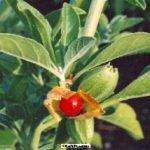
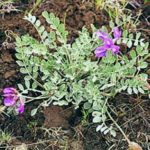
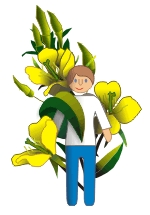
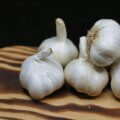
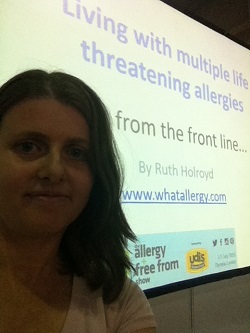
Leave a Reply